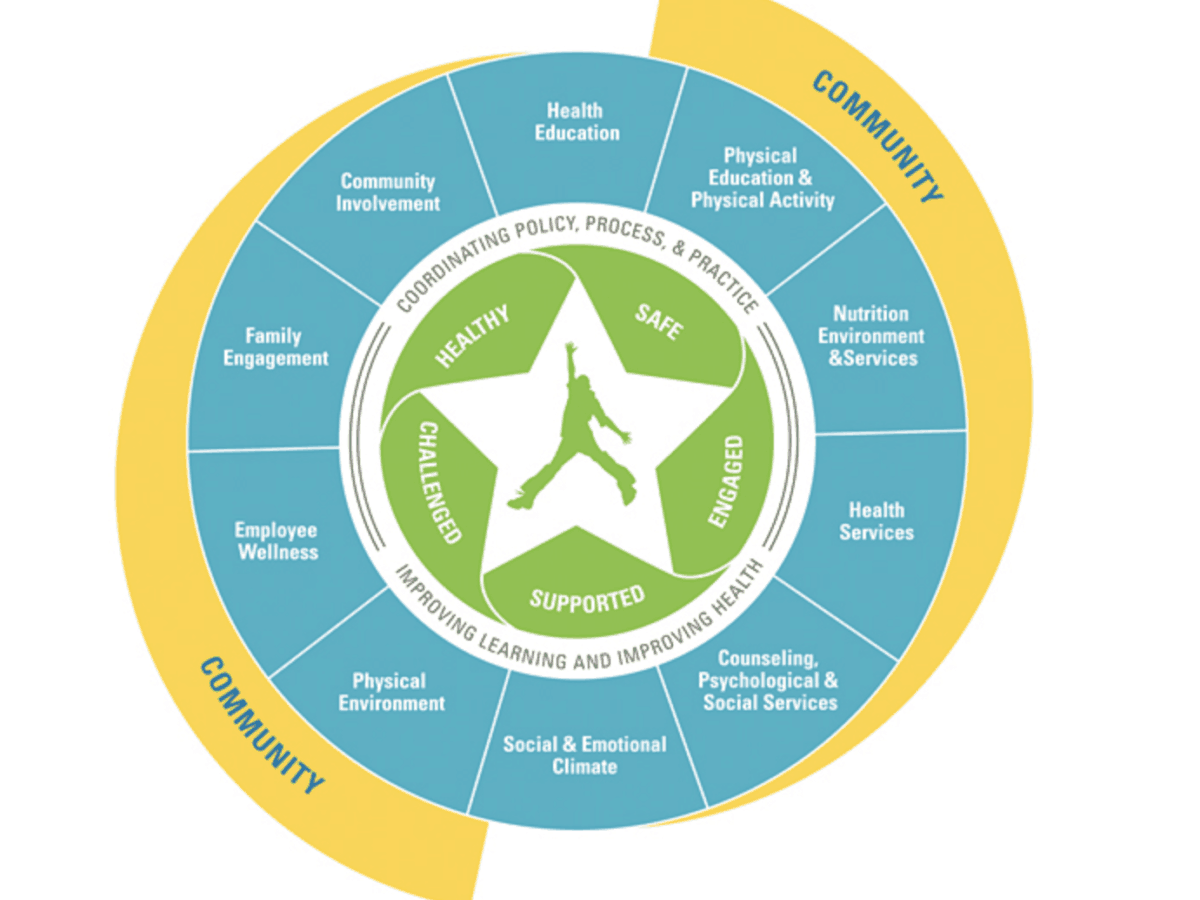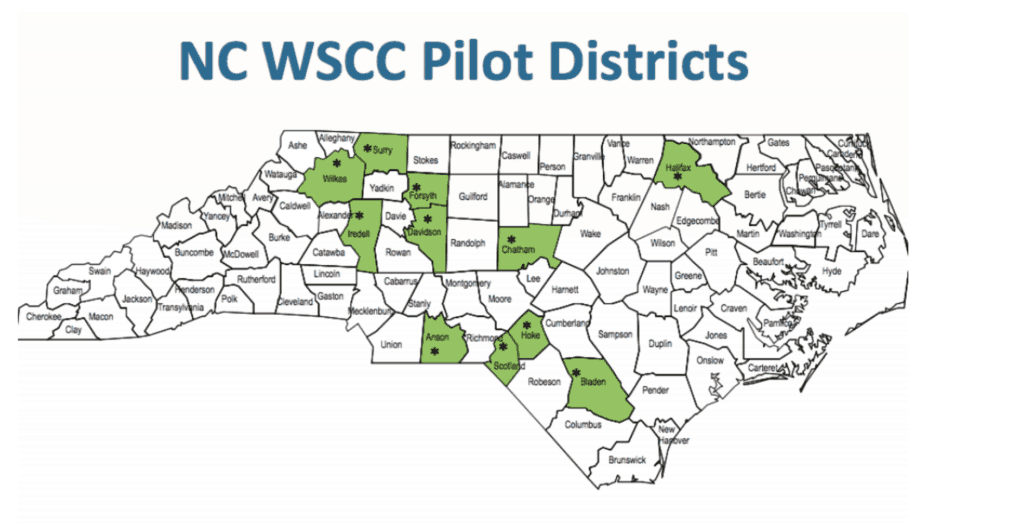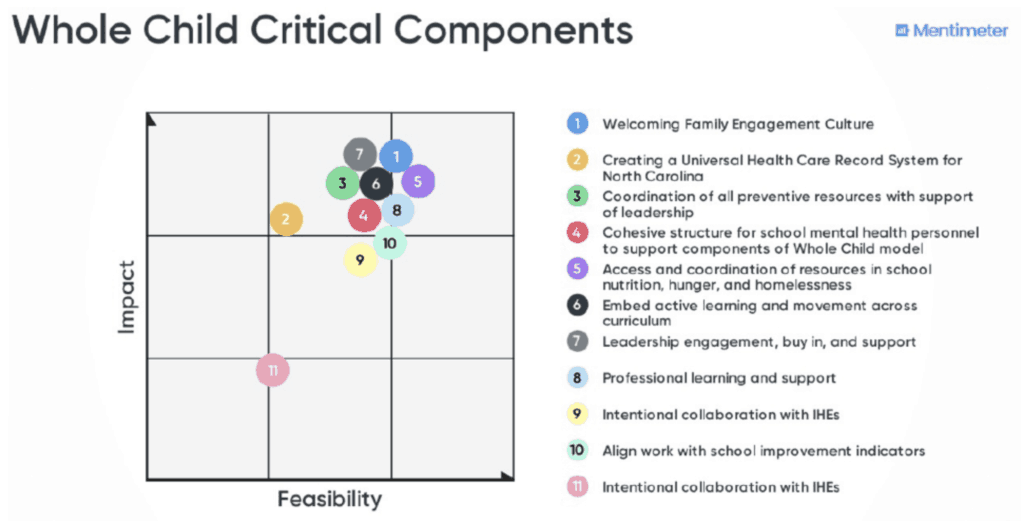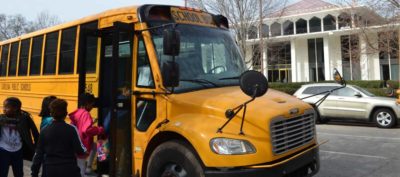
Nearly four years after an inter-agency advisory committee was commissioned to examine non-academic barriers to success for North Carolina students, the Whole Child NC committee met Thursday to finalize its first set of recommendations to the State Board of Education (SBE).
The recommendations, spanning three critical components to providing a sound, basic education to students, include integration with teacher prep programs, adding whole child scoring to state report cards, and working with community partners to identify and implement prevention practices.
What is Whole Child NC?
In 2015, nearing the 20th year of the Leandro v. North Carolina lawsuit in which plaintiffs sued the state, claiming they were being denied equal educational opportunities, trial Judge Howard Manning Jr. called for an inter-agency advisory committee to be put together through the SBE to lead an initiative that dealt with non-academic barriers to student success.
Former SBE members Buddy Collins and Trisha Willoughby became the first co-chairs of this committee, and among their first tasks were strategy and branding. Around the same time, the Whole School, Whole Community, Whole Child (WSCC) model for approaching students, created by the Center for Disease Control, was gaining recognition.
That model, and subsequently the Whole Child NC model, shifts away from an exclusive focus on academic achievement and towards the idea that a student’s success at school is tied to comprehensive health and well-being. The model, developed in partnership with the Association for Supervision and Curriculum Development (ASCD), encourages participation by multiple stakeholders, including medical professionals, counselors, nurses, psychologists, state agencies, and nonprofit organizations.
It recognizes that learning does not occur in a vacuum; under the model, school systems will be fully integrated with other providers to address student needs in 10 key component areas.
“It’s a comprehensive approach to each child from the time they come into the world until they get through K-12 education, and I think that’s our best hope,” Bill Cobey, then chair of the State Board of Education, said in 2017.
When first created, Whole Child NC was an internal committee of the SBE. About a year ago, the SBE decided it should be a staff committee acting as outside advisor to the Board instead. Since that time, a cross-section of stakeholders from around the state and within the Department of Public Instruction have met quarterly at the DPI building and prepared for their first major check-in: the recommendations to the SBE, which are finally coming August 7.
What has this inter-agency advisory committee been doing?
Toward the end of 2017, the SBE asked that no recommendations from outside committees be brought to it before October 2018, so Whole Child NC focused on testing ideas and the WSCC model inside school districts.
“We wanted to pilot it before we got to recommendations because we wanted to ensure that a focus on these areas really would be beneficial to a school’s improvement and to a child growing,” said Maria Pitre-Martin, who was deputy state superintendent and chair of Whole Child NC before leaving for a superintendent job in Virginia.
Pitre-Martin said the work was very intentional, rolling out a pilot program in 11 districts in 2017 and following their progress through 2018.
“It’s tough, because everybody talks about whole child, but then when the rubber hits the road and it is time to buy in, it gets tougher for folks, because it is like, ‘Well, testing is next week,’” Ellen Essick, NC Healthy Schools section chief, told EdNC two years ago. “And so really making that commitment is what we are asking these 11 LEAs (local education agencies) to do and to make this a priority.”

They heard about districts creating school gardens tended by the students and used to feed the school and community. They heard about superintendents installing washers and dryers at schools because students didn’t have them at home, and principals saw behavioral and academic improvement directly related to students feeling more confident and less embarrassed.
“It’s really remarkable and we’re hearing about these wonderful results from these pilots and it’s helping us to frame our recommendations to the State Board,” Pitre-Martin said.
In January, the Whole Child NC group met to determine what their recommendation to the SBE should include using three guiding questions: (1) what will be done; (2) who will be impacted; and (3) what is the desired impact. The committee members participated in surveys to help identify what areas of work to prioritize based upon impact and feasibility, plotting the results for discussion:

In April, Whole Child NC went over its fine-tuning protocol and focused on three “critical components” from the survey results: (1) welcoming culture of family engagement; (2) coordination of preventive resources; and (3) leadership engagement, buy-in, and support.
At Thursday’s meeting, the focus was on what recommendations to present to the SBE in two weeks.
What will next month’s recommendations to the SBE look like?
The recommendations span three categories:
Welcoming culture of family engagement: The recommendations from this sub-committee include compiling an orientation video from pilot districts within six months, conducting site visits of pilot districts and working with the pilots to formalize a definition of “family engagement,” and within three years, identifying a WSCC measure for inclusion in state school report cards.
Coordination of preventive resources: Recommendations from this sub-committee are that public school units should collaborate with community partners and/or School Health Advisory Council (SHAC) to:
- identify non-academic social emotional, physical, and mental health needs of students;
- identify effective practices to address identified needs;
- create or update action plans to implement for addressing the identified needs;
- evaluate outcomes; and
- communicate policies, plans and progress
Leadership engagement, buy-in, and support: This recommendation is to develop program-approval requirements and communications that will focus educator prep programs for principals, superintendents, teachers, and support staff on the WSCC model. The recommendation includes plans to develop policy language for School Administrator Preparation Programs (TCED-015).
These recommendations are just the first, Whole Child NC said on Thursday. The group will continue to meet and work on details of the three critical component recommendations.
“I would look at this as this is ongoing work. This isn’t the end,” said Christie Lynch Ebert, director for DPI’s Standards, Curriculum, and Instruction division. “This is a chance to update the board and tell them where we are at this point and the process that we’ve gone through with these three big categories.”


